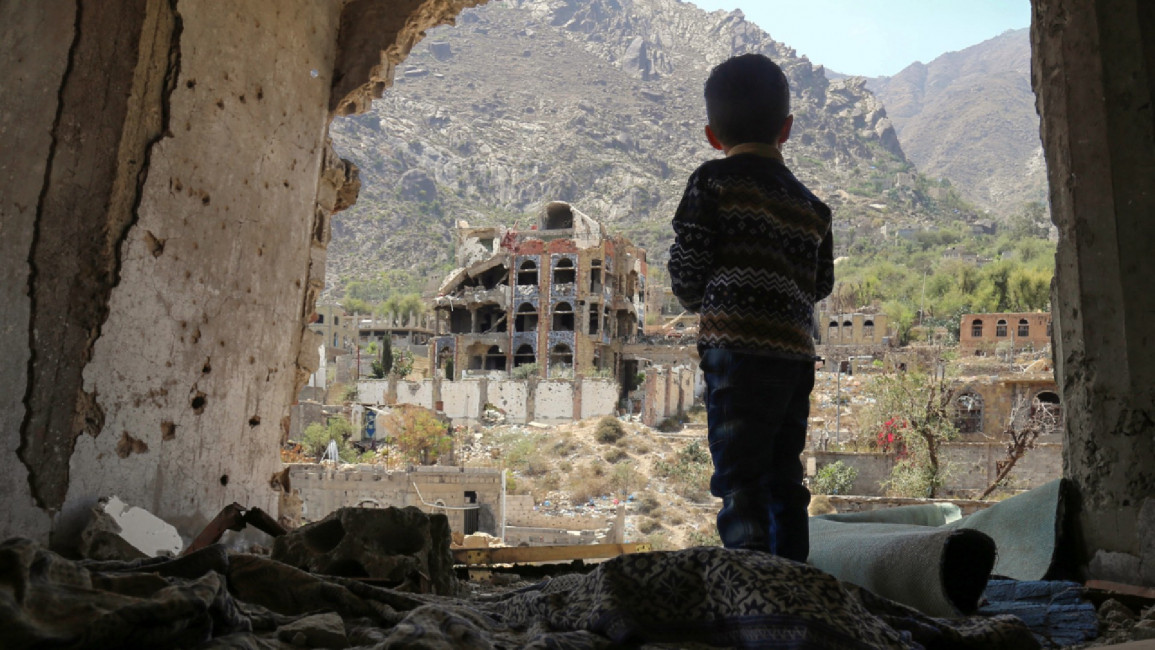Saudi-led coalition revenge strikes target Sanaa following Houthi attack on kingdom
The Saudi-led military coalition on Monday said it carried out multiple air strikes on Yemen's rebel-held capital Sanaa in retaliation for missile strikes on the kingdom.
The operation was aimed at destroying "legitimate military targets" including Houthi ballistic capabilities which "threaten civilian lives", the coalition said in a statement released by the official Saudi Press Agency.
Residents in Sanaa reported multiple explosions after the coalition's bombing campaign began.
The Houthi-run Al-Masirah television reported at least 19 air strikes on a number of targets in Sanaa, including military bases and a military academy.
The operation comes after Saudi air defences intercepted Houthi ballistic missiles over Riyadh and the border city of Jizan late on Saturday.
Read also: US cuts healthcare aid to Yemen despite coronavirus worries
The attacks left two civilians wounded in Riyadh, which is under a 15-hour curfew to limit the spread of coronavirus, according to Saudi state media.
It was the first major assault on Saudi Arabia since the Houthi rebels offered last September to halt attacks on the kingdom after devastating twin strikes on Saudi oil installations.
A Houthi spokesman said the rebels struck "sensitive targets" in Riyadh with long-range Zolfaghar missiles and Sammad-3 drones. The rebels also claimed to have hit "economic and military targets" in the border regions of Jizan, Najran and Asir.
Information Minister Moammer al-Eryani slammed the attack in a tweet posted on Twitter, saying it confirmed the "continued flow of Iranian weapons" to the Houthi militias.
"This militia lives only on wars and doesn't understand peace language," he said.
Fighting has also escalated between the Houthis and Riyadh-backed Yemeni troops around the strategic northern districts of Al-Jawf and Marib.
Twitter Post
|
The rebels stormed a key governmental military camp in Al-Jawf after heavy clashes on Monday, according to Yemeni military sources.
The warring sides had earlier shown an interest in de-escalation, with a Saudi official saying in November that Riyadh had an "open channel" with the rebels with the goal of ending the war.
The Houthis also offered to halt all missile and drone attacks on Saudi Arabia after the strikes on oil installations in September, which were claimed by the rebels but widely blamed on Iran, despite its denials.
Read also: Three big lessons from Yemen's five years of war
But those efforts seem to have unravelled and observers believe the rebels may have used the lull to bolster their military capabilities.
Riyadh had expected a quick victory when it led a multi-billion dollar intervention in 2015 to oust the Houthi rebels, under a newly assertive foreign policy led by Crown Prince Mohammed bin Salman.
But the costly intervention has failed to uproot the rebels from their northern strongholds, while pushing the Arab world's poorest nation into a humanitarian crisis. More than 100,000 have died since the Saudi-led military intervention in March 2015.
Coronavirus pandemic
The escalation comes despite a show of support on Thursday by all of Yemen's warring parties for a UN call for a ceasefire to protect civilians from the coronavirus pandemic.
Saudi Arabia, the Yemeni government and the Houthi rebels all welcomed an appeal from UN Secretary General Antonio Guterres for an "immediate global ceasefire" to help avert disaster for vulnerable people in conflict zones.
On Sunday, Griffiths reiterated the call for an immediate cessation of hostilities to help avert the "potentially disastrous consequences" of a coronavirus outbreak, though Yemen has yet to record any cases.
"I am gravely dismayed and disappointed by these actions at a time when the Yemeni public's demands for peace are unanimous and louder than ever before," UN special envoy for Yemen Martin Griffiths said on Sunday.
"Yemen needs its leaders to focus every minute of their time on averting and mitigating the potentially disastrous consequences of a COVID-19 outbreak."
Aid workers have warned the impact from an outbreak in the country, which has a broken healthcare system, would be catastrophic.
The country is already gripped by what the UN calls the world's worst humanitarian crisis.
Saudi Arabia is also scrambling to limit the spread of the disease at home. The kingdom's health ministry has reported 1,453 coronavirus infections and eight deaths from the illness so far.
The COVID-19 virus, which was first detected in China's Wuhan in December, has killed more than 34,344 people worldwide, while over 742,444 infections have been confirmed.
The majority of those that infected with corona experience only mild or moderate symptoms, including fever and a dry cough.
As of yet, there are no known treatments for the virus, though more than 157,043 have already recovered from the infection.
Follow us on Facebook, Twitter and Instagram to stay connected



